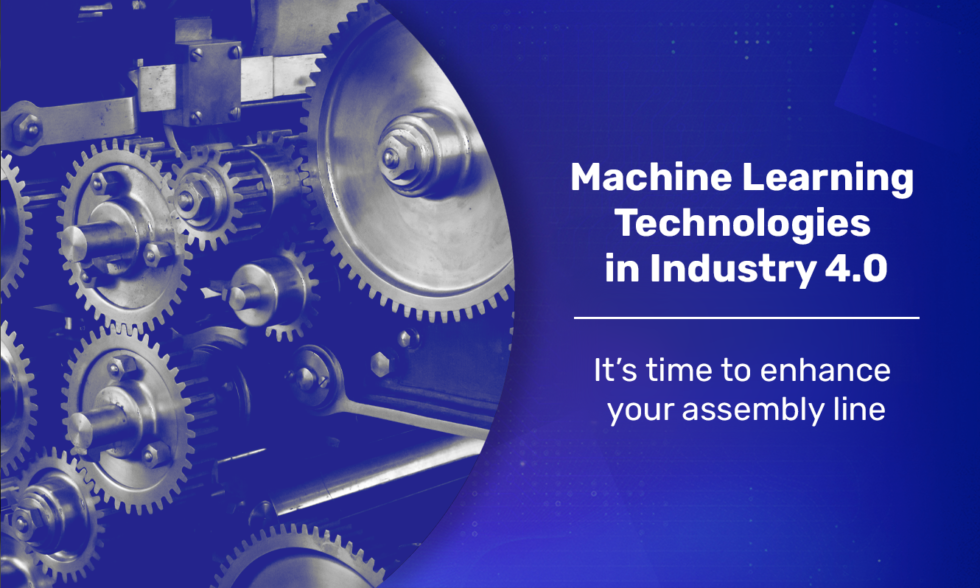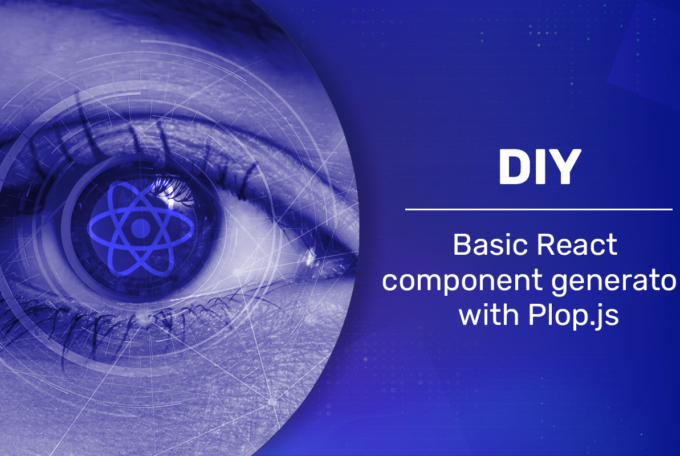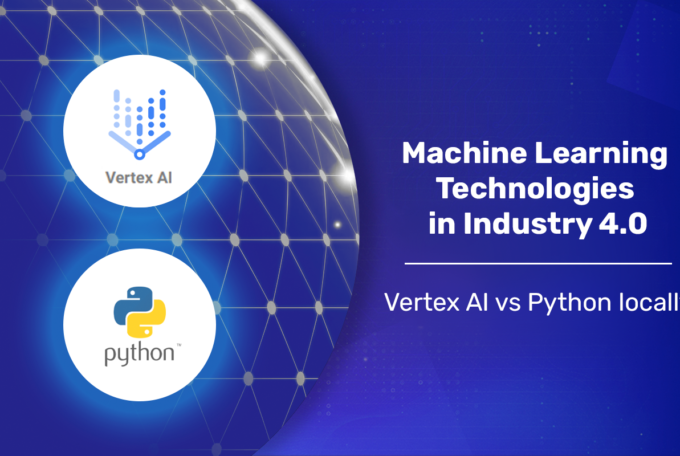For enhancing production performance. For reducing manufacturing costs. For improving the quality of goods. Ultimately, for attracting customers and increasing profits. If your KPIs (key performance indicators) are based on similar indicators, Machine Learning and Industry 4.0 solutions are the way to pursue your goals. Effective methods for improving your company outcomes are of great value right now, while the geopolitical and economic environment is changing so dynamically.
Machine Learning on the assembly line?
Machine Learning is a branch of artificial intelligence that is able to “learn” to draw appropriate conclusions and respond properly on the basis of delivered data. ML processes are solutions that you can use in nearly any department of your company, including production. This concept can be connected with machines, and fundamentally with the repetitiveness of operations and the dependencies between them. Machines provide masses of information that can be used for the optimisation of the manufacturing processes, but first they have to be properly prepared for that. Usually that is why they require qualified operators. This is not altogether true, as with the development of Machine Learning, we are no longer dependent only on qualified staff.
Machine Learning in the industry
In many companies, machine operators are required to adjust the settings of the machines to the current needs of the company. Some equipment used in the assembly line may have a lot of parameters that require precise operation. This enhances production performance and saves materials, but is time-consuming and does not always guarantee effects, as these depend on the operator’s knowledge and experience. In addition, machines provide massive amounts of data that an ordinary specialist is not always able to process effectively. Machine Learning technologies are a significantly better alternative in this case.
There are several solutions that can help enhance production performance and save materials. Here are some:
- Human only solutions do not require complex technologies. This traditional approach assumes training employees in machine configuration. This is time-consuming at the training stage and also during production, when operators need to tweak parameters in order to program the machine.
- Analysis of data obtained during production. This means collecting data after the production process, cleaning it, dividing it into categories, and looking for dependencies within. You need a proper dose of data to indicate specific relations and dependencies in data base. This is the first step in Machine Learning development.
- Machine Learning. In general, ML is a technology used for data analysis that can support production, preventative maintenance, quality control and innovative research ie. in the manufacturing sector. To err is human. This is our nature. ML can prevent human errors at the stage of analysis and allows the technology to precisely indicate a proper solution method. But the effectiveness of ML lies not only in that this data is refining human knowledge combined with continuous data analysis. It is also the ability to learn how to discover unclear and often invisible at first sight dependencies and patterns.
As you can see, the options for enhancing the production performance vary. Nonetheless, Machine Learning is considered as the most effective in developing a strategy of action. ML enables automation of the majority of production processes, which eliminates mistakes related to planning the production processes.
Machine Learning is universal, which means that it can be used no matter what a given factory produces. This is a huge asset in the case of complex manufacturing processes that combine more than one area of expertise, and assembly lines generating a variety of goods.
What should you pay attention to in collecting manufacturing data?
You need data to be able to implement Machine Learning solutions into your company. Manufacturing plants should focus on the system of automated data acquisition (plan and implementation). The data are obtained from production machines in the assembly line, but not only. External information, such as environmental data from the hall (temperature, air humidity, pressure etc.), information from the company related to market trends, feedback from customers, suppliers and competition, should not be ignored, as it can have a potential impact on the production. With these data we are able for example to maintain control over the quality of end products. An automated analysis of Machine Learning helps us to find weak points in a product, identify the responsible moment of the production, and correct errors in machine configurations or improve their performance and quality.
Machine Learning in your business
Algorithms of Machine Learning facilitate detecting dependencies, changes and critical moments of production. In this way, your company has a tool that immediately responds to manufacturing issues related to quality, safety or low performance. ML can help operators in a more effective machine configuration, as well as save media, materials, time and money.
The sudden lack of a particular specialist will not block further production. The implementation of ML and proper data collection and processing will allow you to enhance your production performance. Machine Learning is also able to predict manufacturing issues on the basis of current data, which prevents expensive failures of equipment and production downtime, as well as improves the safety of the production process.
If at least one of the uses of Machine Learning in the industry has attracted your attention, then with the benefits scaling, this one method can turn out to be extremely profitable for your company. Save time and money, and use your assembly line to the maximum extent possible. Contact our Data Science Department!



